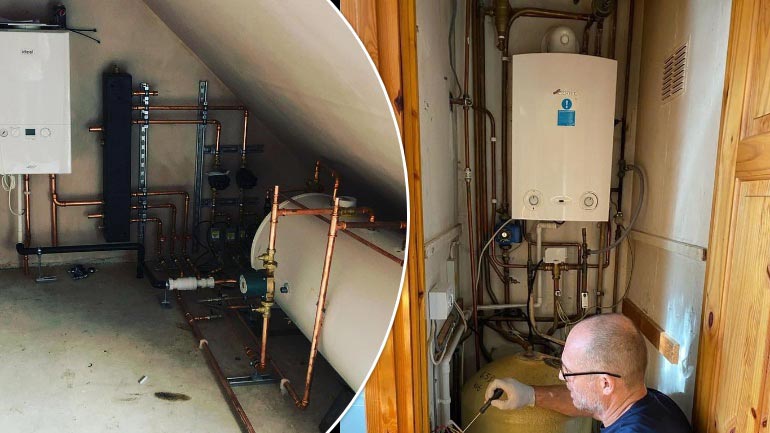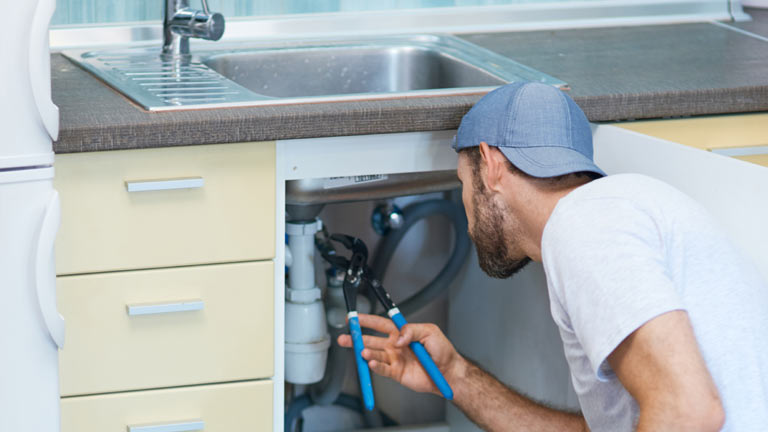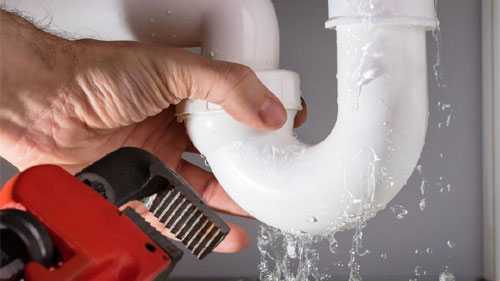
No one wants to deal with boiler problems, but they can be inevitable as your boiler gets worn over time. Unfortunately, it can be difficult to spot potential issues before it’s too late. Your hot water will be running fine one day, then the next you could get a nasty surprise to turn your shower on in the dead of winter only to get freezing cold water!
Below we’ve broken down the 7 most common boiler problems and their causes so that you can identify issues as soon as they crop up. This can help you to either fix the issue yourself or describe what you believe the issue is to a certified engineer.
1. Leaking
If your boiler is leaking, there could be a few potential causes:
Issues with an internal component, such as the pressure valve. If the leak is coming from the pressure valve itself, the pressure of your boiler could be too high
If the boiler is leaking when it rains, water could be entering through the flue
The filling loop could be leaking. The filling loop has two shut off valves, one on either end – there could be an issue with one of these
Internal corroding: these can be particularly serious in electric boilers, which could short circuit if a leak occurs in the wrong place. On this occasion, it might be more cost-effective just to get a new boiler installed. Lengthy and frequent repairs can cost you a lot of money, that’s why you have to compare the cost of a new boiler vs. the total cost of repairs and see if a new boiler is a better option.
It’s also worth noting that this could be an issue that has been building up over time due to the way it was initially installed – if so, lengthy repairs may need to take place to fix the issue which will be building up potentially over several years.
2. Low boiler pressure
To identify if you have an issue with low boiler pressure, take a look at the built-in pressure gauge. The pressure should be at 1.5 bar. Any lower than 1 and your boiler just won’t function properly.
Low boiler pressure can be caused by a failed component, recently bled radiators, or system leaks. Leakages are a very common indicator of low boiler pressure. If you suspect that leakages are the culprit, do NOT remove any casings as this can be dangerous.
3. No heating or hot water
Again, check your pressure gauge and if it is below 1, this will confirm that there is an issue. In this instance, the manufacturing guide may be able to give you an answer. If not, try contacting the manufacturer themselves. If this still does not help, your boiler may need repressuring by an engineer.
It’s also worth checking if the pilot light is turning blue on a gas boiler and if the thermostat is set correctly on an electric boiler.
Causes of this issue could be broken thermostats, broken system diaphragms/airlocks, and faulty motorised valves.
4. Noises coming from the boiler
It is quite normal to hear some noises coming from your boiler when it is first turned on, but any new abnormal noises, such as clanging, gurgling, or whistling could indicate an issue. This could be a result of a faulty pump, a buildup of air, a build-up of limescale (known as ‘kettling’), or low water pressure. In the case of low water pressure, the central heating system won’t be receiving enough water to heat the pipes in your home, hence the lack of heat.
5. Boiler won’t turn on, or turns on briefly and then switches off
If this is happening, it’s best to see if there is an issue within your home by checking other electrical appliances – it could be as simple as a local power outage. If your other appliances and plugs are working, take a look at your fuse box to determine whether any switches have failed or tripped. If none have, it is best to get in contact with an engineer who can investigate further.
If your boiler turns on briefly but keeps switching off after a few seconds or minutes, there could be issues with low pressure or even a blockage in the system. It could also be your ‘boiler lockout’ kicking in. This is a safety feature that many boilers are now fitted with, which activates in certain scenarios. Again, check the pressure gauge and if it is below 1, contact an engineer.
6. Heating not turning on or off at the scheduled time
If your heating isn’t coming on at the scheduled time, it could be a result of your room thermostat not connecting with the timer. Try resetting the boiler or turning it off and restarting your central heating system. It could also be as simple as the clocks recently going forwards or backward and your boiler has not had a time change!
7. Only hot water or only heating works – not both
This issue is quite common in older models and is typically an issue with the diverter valve. The diverter valve filters the water and typically focuses on running hot water or showers. When taps and showers aren’t being used, all hot water will be focused on the heating. Over time, this can get stuck due to the buildup of debris. In this instance, it is likely that the unit is already worn out, so it’s probably more cost-effective to look into getting a full replacement.
In conclusion…
As you can see, there can be a variety of issues with your boiler, and even more causes! We’re spending even more time at home this year, so it’s important to keep everything running smoothly otherwise you might suddenly find yourself without heating during the cold winter months.
If you have tried troubleshooting using our advice above and still cannot determine what is causing the problem, it’s worth getting in touch with a qualified engineer who can determine the root cause.
As restrictions are constantly changing, many plumbing businesses are changing their services with it. Engineers can pop in for emergency appointments, using COVID-safe measures including wearing PPE, washing hands upon arrival, and disinfecting areas of work once the issue has been fixed. Even if engineers can’t visit you to inspect your boiler, some tech-savvy businesses are now offering video calls to determine the issue. Get in touch with an engineer today and get your problems sorted ASAP!




